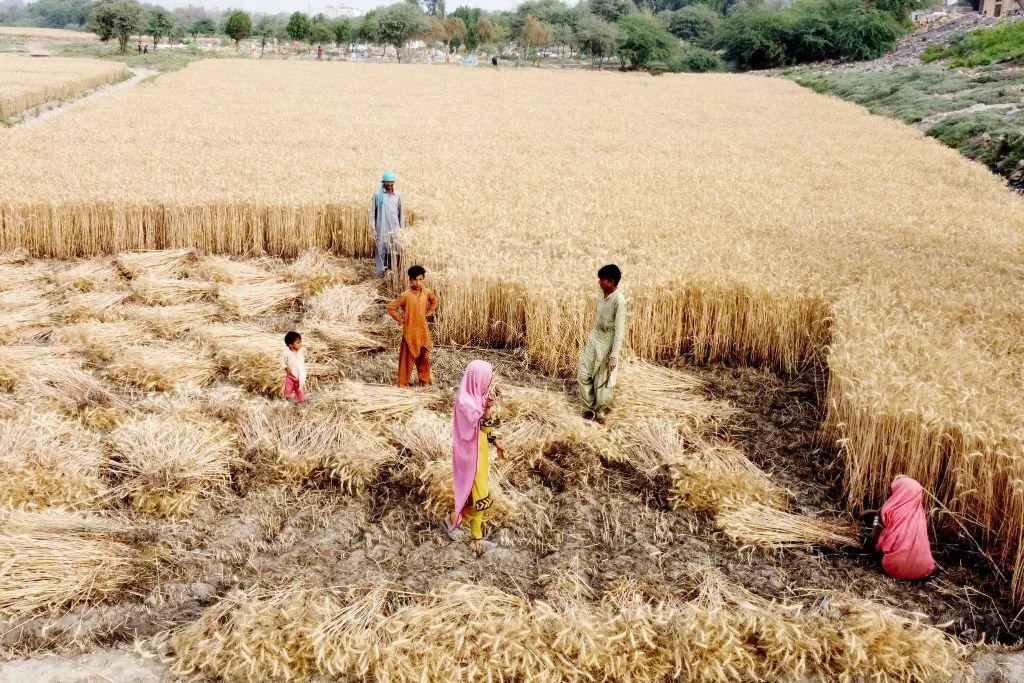Islamabad, 21 Apr, 2025: Farmers across Punjab are on edge, as they express deep concern over the government’s inconsistent approach to wheat pricing. The Wheat Price Dispute has intensified following a stern ultimatum from Kisan Ittehad Chairman Khalid Hussain Bath.
During a recent media briefing in Islamabad, he cautioned that if authorities fail to set a just wheat support price, cultivators would be left with no option but to stage a hunger strike in the federal capital.
Bath criticized the administration’s ineffective handling of wheat procurement, particularly after Chief Minister Maryam Nawaz’s recent statements.According to him, her announcement triggered an immediate drop of Rs 400 per 40kg in market rates.
READ MORE:
Punjab Farmers Protest Wheat Price Injustice
He voiced disapproval of the newly introduced third-party procurement system, questioning how rural growers many unfamiliar with modern infrastructure could adapt to a European-style model without guidance.
He argued that replacing the traditional procurement system with a bureaucratically driven storage mechanism could open doors to further exploitation and malpractice.
The disconnect between field realities and government planning, he said, was harming genuine producers.
Punjab’s wheat belt, spanning over 12.5 million acres, is now under severe financial stress. Without a fair minimum support price, Bath warned, the wheat market may collapse, benefiting middlemen and hoarders instead of actual farmers.
Many cultivators are already struggling to meet household needs and fear they may be forced to abandon wheat sowing next season.
“If urgent purchases aren’t initiated, local grain availability will decline drastically, and the country will have no choice but to rely on costly imports,” Bath noted. “Supporting domestic agriculture is not only strategic it’s essential.”
READ MORE:
Punjab Unveils Rs15bn Relief Package for Wheat Farmers
Although the government unveiled a Rs 15 billion assistance package via the Kisan Card scheme, including tax exemptions and financial support, many farmers say it falls short of what’s truly needed.
The offer of a free Electronic Warehouse Receipt (EWR) facility, valid for four months, aims to provide short-term relief, but critics argue it doesn’t address the core pricing issue that threatens the entire supply chain.
In this escalating Wheat Price Dispute, the farming community continues to rally, with one unified voice: they must be heard before it’s too late.









